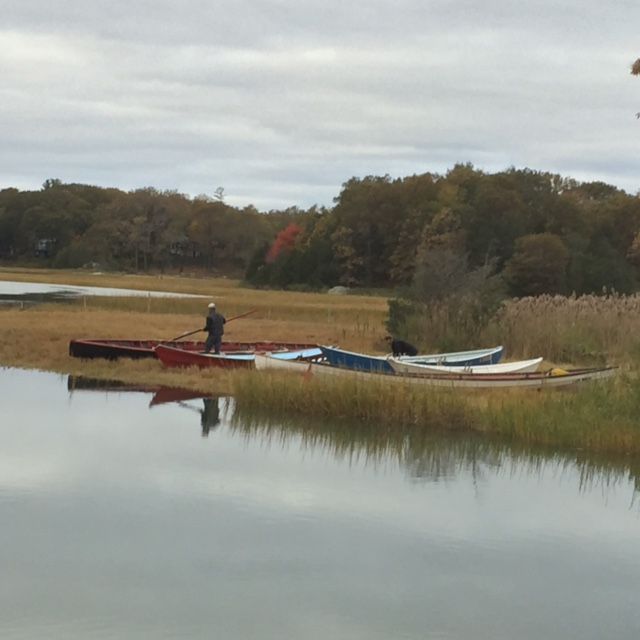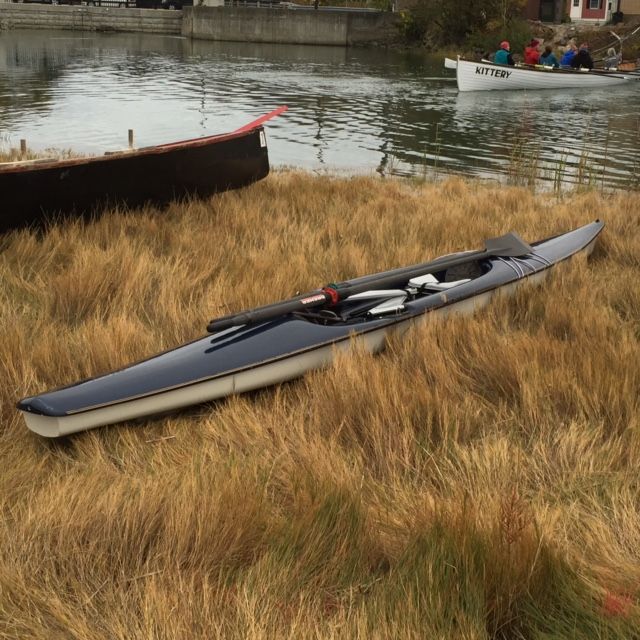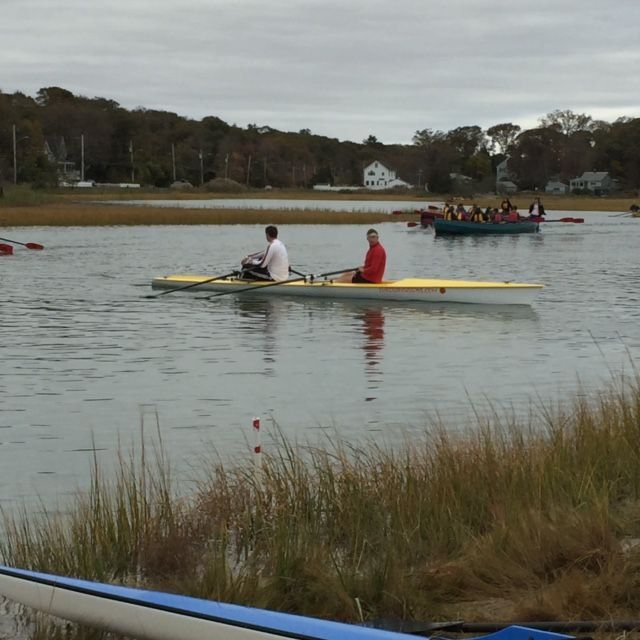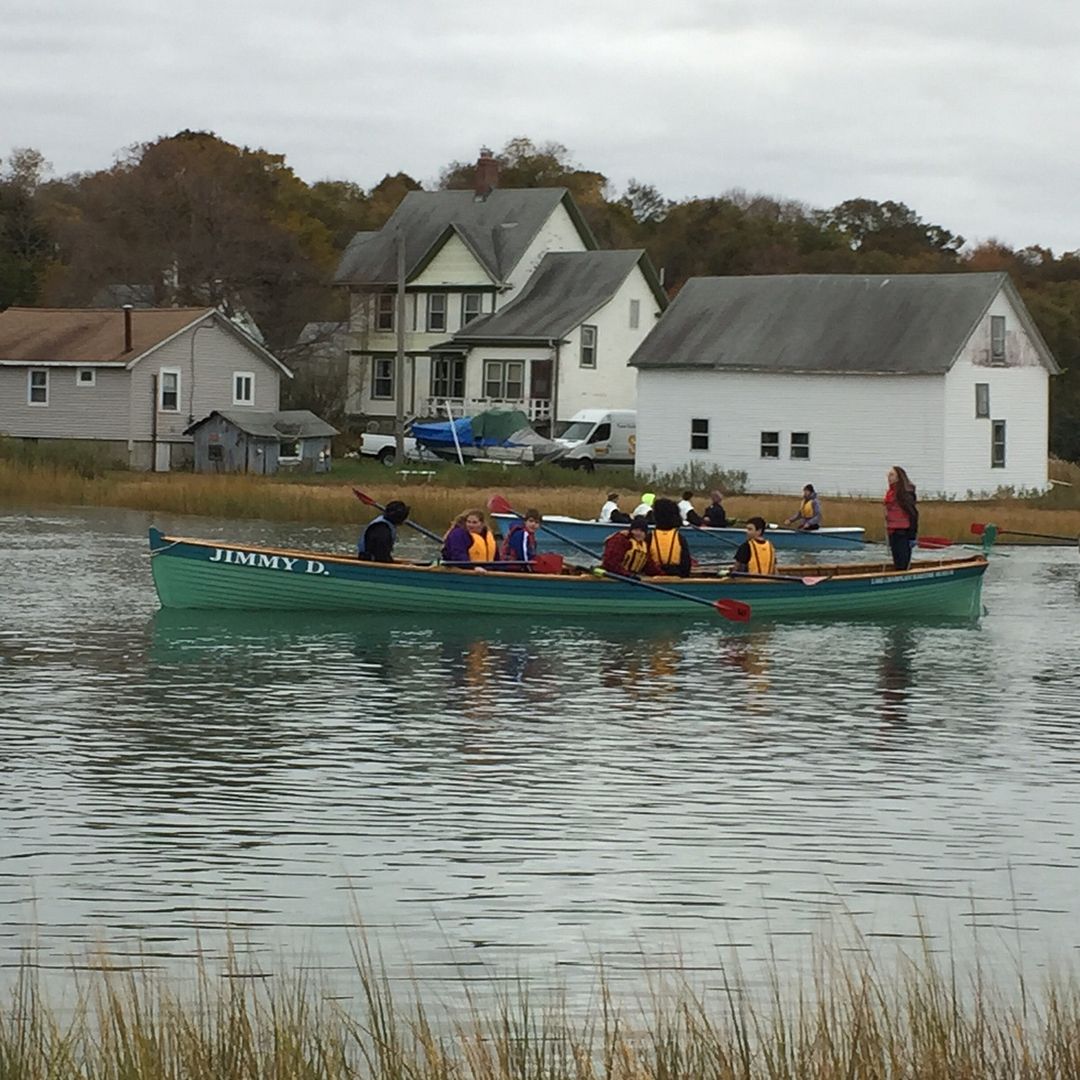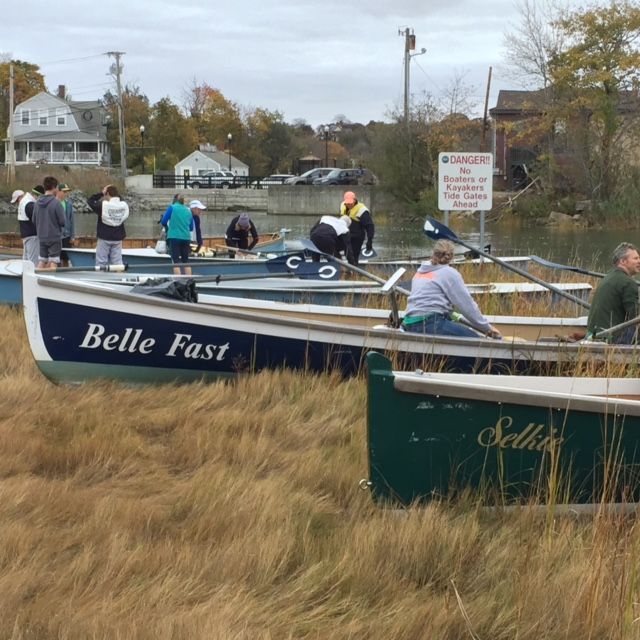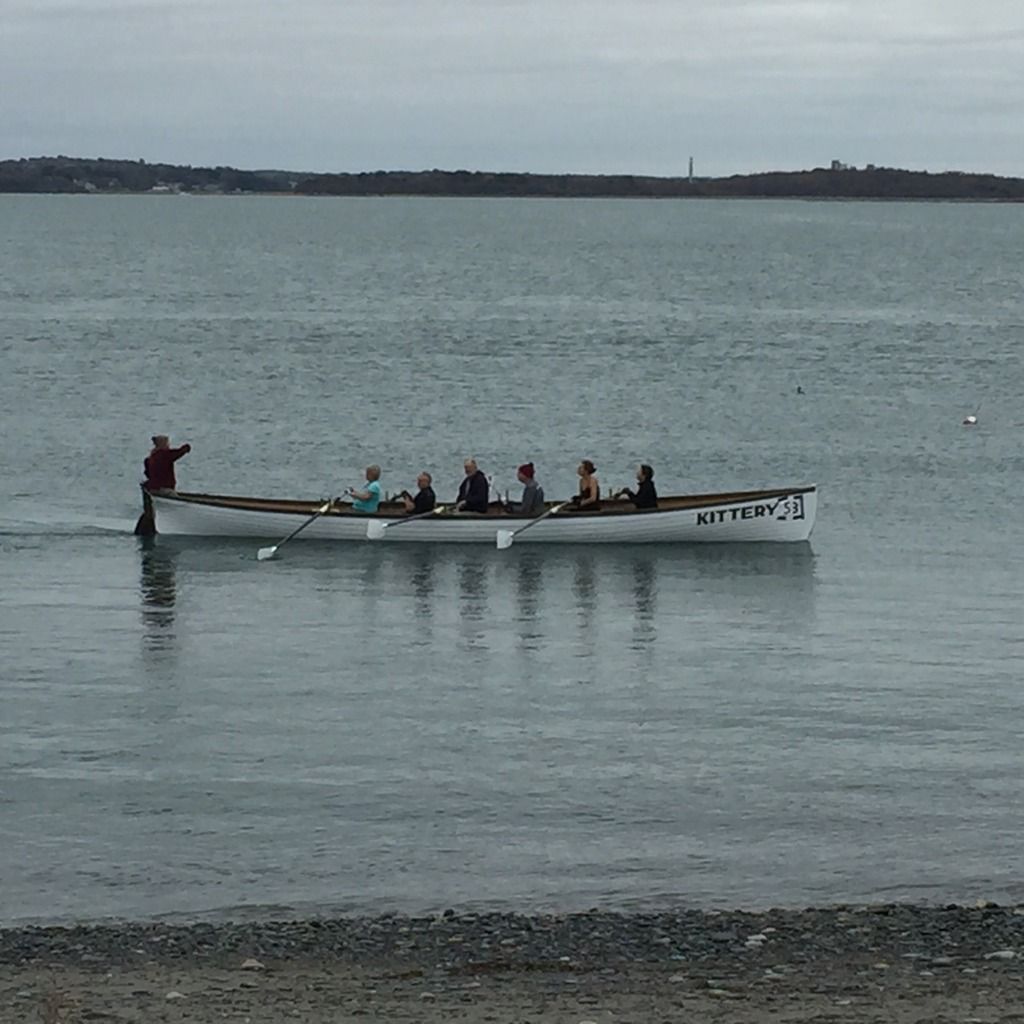Post
by PaulG » October 12th, 2015, 8:56 pm
Sometimes interesting things happen even when you don’t row. I drove down to Plymouth Massachusetts with my wife for the Massachusetts Bay Open Water Race. As we pulled into the parking lot at Nelson’s Beach at 08:30, I could see that Plymouth Bay was covered with white caps, but seemed rowable. By the time of the skippers meeting at 10:00 the wind had continued to rise and I was wondering again why I couldn’t just golf. Just before we launched at about 10:30 the race director said the wind was a steady 15 knots with gusts to 30 kts offshore. The big boats (whaleboats, pilot gigs, dories) would be OK but I had to seriously think about safety conditions before I decided to launch my 18 ft sliding seat open water shell. There was only one other person in a single sliding seat boat. My thought processes in deciding whether or not to row were as follows:
1. I had trained for the race, gotten up at 05:00, drove 1.5 hours and there were friends and family there to watch the race. I quickly decided that the social capital was irrelevant and the decision to go had to be made on conditions at the time.
2. I could start the race and then decide after the first mark to abandon the race if conditions further offshore were too difficult. No, that did not make sense either because if an activity is unsafe for your ability or equipment you shouldn’t even start it.
3. The winds were averaging 15k kts and with gusts to 30. I could handle 15 kts, but an average meant that 50% of the time the winds were higher than 15 kts. Furthermore, I could not handle 30 kt winds and the extremes are the ones that get you in trouble. A 30 kt gust at the wrong time could put me in water temperatures in the 50s F. The average wind and wave conditions are irrelevant. The extremes are the ones that get you in trouble.
4. Finally, the fact that I was even doubting my ability and equipment to safely complete the race indicated that I should not go.
That was it; I found the race director and withdrew. I was the only one to do so, and quietly dragged my boat up off the beach. I went back down to the beach to help a fellow rower launch through the surf. He had one of the new FISA open water sliding seat boats that was longer, wider, and heavier than my boat and more seaworthy. This was a “yole” style boat with an open stern that allows water that might come over the bow to slosh right out. I held the stern while Mr. Yole launched through the surf, but he slipped and got soaked getting in.
The dories and Mr. Yole made it out to the starting line and headed out to the first mark in a cross chop. Then they turned directly into the wind and I could see Mr. Yole was not making much headway. After a while, he turned back to shore accompanied by the crash boat. However, they weren’t headed back to the starting line; they were headed for the nearest land, a small protected pocket beach on the other side of a point of land southeast of the start. The Plymouth Harbormaster remained on station in the middle of the race course, but was not actively shadowing the racers. Several heats were on the water at the same time. Mr. Yole, a very experienced rower, was rowing slowly to shore with lots of glide between strokes. They disappeared around the point and then I saw the crash boat head back to the race. I walked back to the beach and involuntarily started into a trot. Once on the beach I started running in my neoprene booties, splash pants, and two polarfleece shirts. I made it to the point, clambered up over the riprap, ran across some expensive backyards, and down to the pocket beach.
Mr. Yole was standing there staring at his boat, oars, riprap, and parking lot above the riprap.
“You OK there? ”
“Oh hi, I came in.”
“You want my fleece?”
“Yes I do. I need to get back to my truck. Now. Let’s start running.”
I expected him to refuse my shirt but he was cold. Very cold. He stripped off his wet shirts and put my stuff on. On the way back my wife met up with us and she had another fleece pullover and a down quilt. Mr. Yole gladly put on the second fleece and covered his head with the quilt. Once we made it to the truck and heat came on everything was OK and we drove back to pick up the boat. Mr. Yole probably wasn’t hypothermic but he was headed that way.
I learned that if you are doubting your ability and equipment, don’t go out.
If you are in a crash boat you should stay with the people who headed to shore or radio back to the race organizer that you left someone alone on the shore.
So, it was another adventure even though I didn’t row. Mr. Yole sent me a nice email thanking me.


